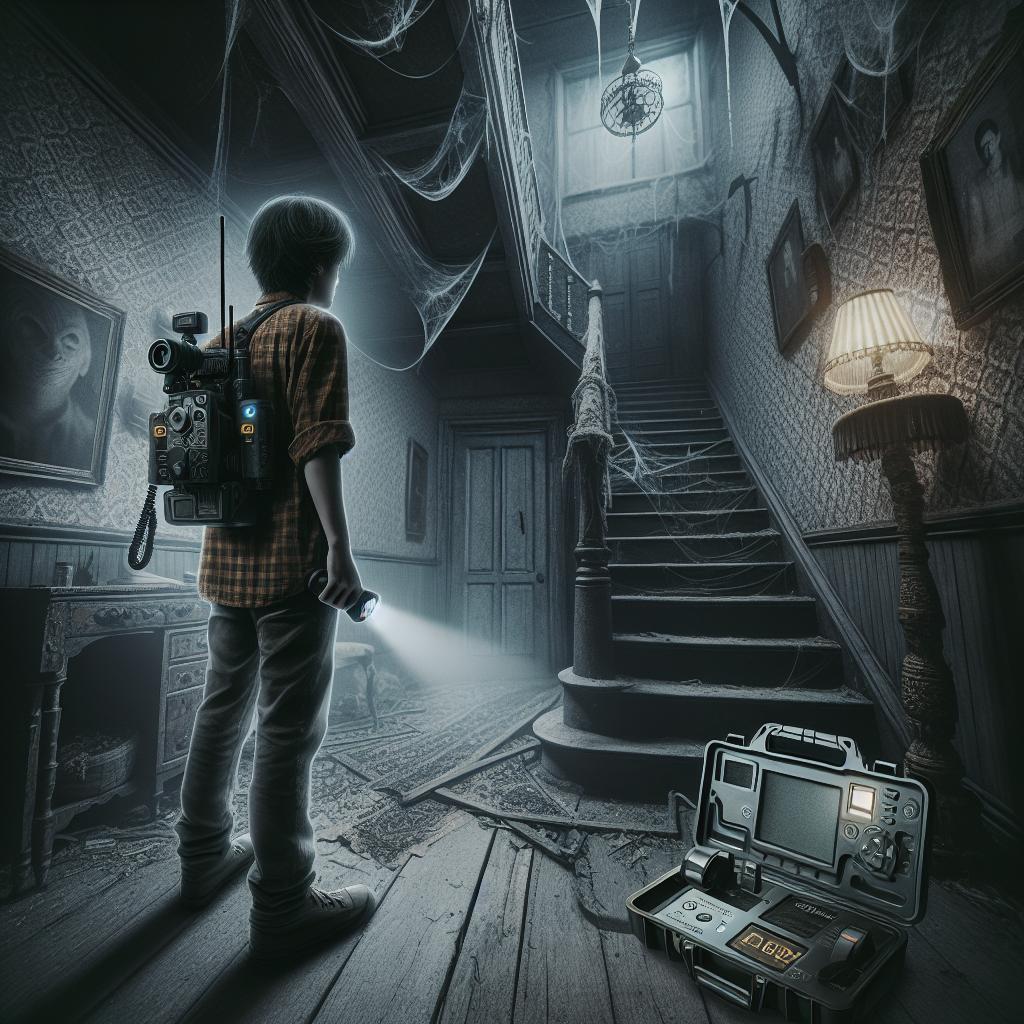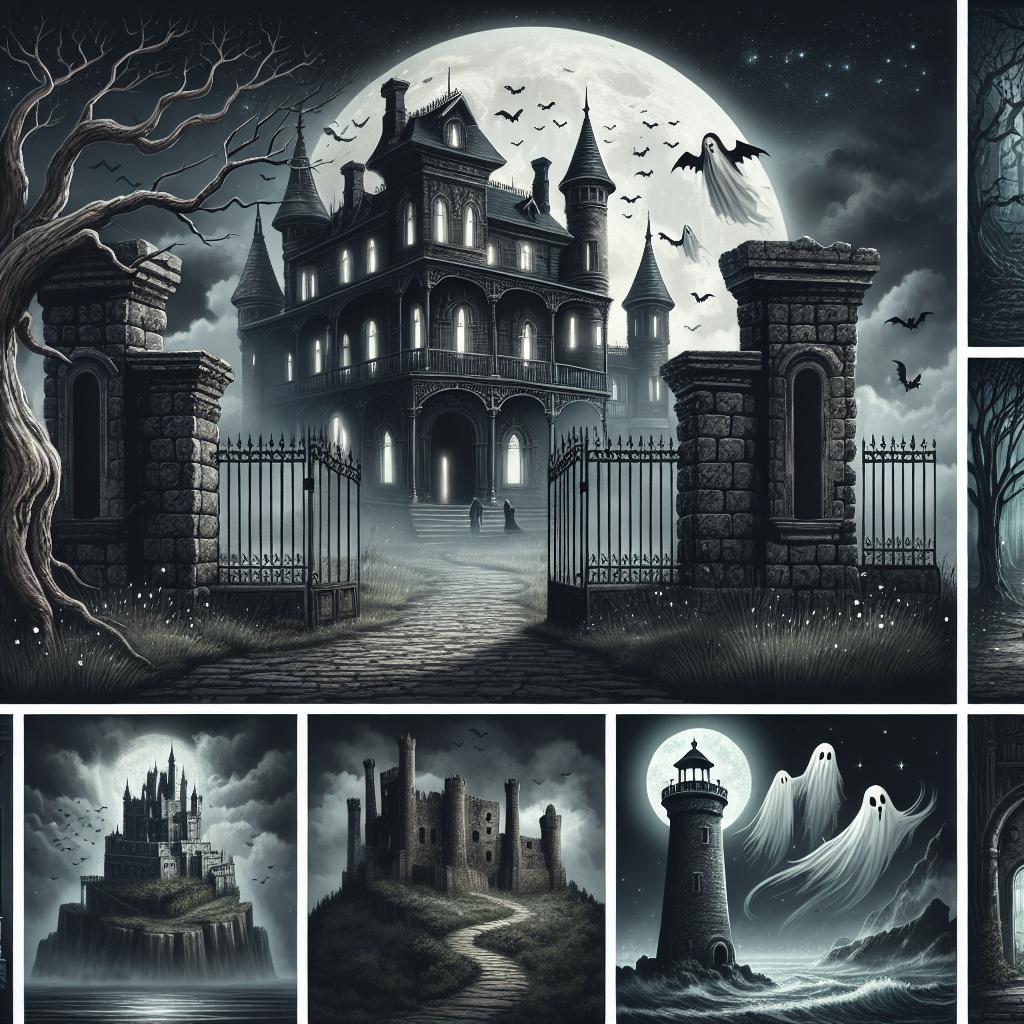“`html
Reasons Some People Are More Susceptible to Paranormal Activity
Throughout history, paranormal activity has fascinated and bewildered people across cultures. While some individuals have vivid experiences with ghosts or supernatural elements, others remain skeptical. The reasons behind these varieties often blend psychological, cultural, and individual factors. This article delves into several key areas that might explain why certain individuals are more inclined to experience or believe in the paranormal. From cognitive styles and personality traits to religious background and brain chemistry, we uncover the intricate web that makes some of us more vulnerable to these mysterious phenomena.
It Helps If You Believe That Paranormal Experiences Are Possible
Belief plays a pivotal role in experiencing the paranormal. Individuals who are already open to the possibility of ghosts or other supernatural phenomena may interpret unexplained events in light of those beliefs. This is often due to a psychological pattern where perception is influenced by what one believes to be true. Such individuals are more likely to notice and remember events that align with their beliefs, thus reinforcing their perception of paranormal occurrences.
Moreover, belief systems significantly impact the frequency and intensity of reported paranormal experiences. Once a person subscribes to a belief in the supernatural, they may become more attuned to anomalies in their environment, interpreting these as signs of paranormal activity. This self-reinforcing cycle perpetuates their conviction and susceptibility to such experiences.
Cognitive Style Can Predict Paranormal Beliefs
The way one processes information cognitively can predict their inclination towards paranormal beliefs. Intuitive thinkers, who rely more on instinct than analytical reasoning, are often more susceptible to believing in the supernatural. Their decisions are typically influenced by feelings and immediate impressions rather than empirical evidence.
In contrast, individuals with an analytical cognitive style, who base conclusions on systematic and critical thinking, tend to be more skeptical. This divergence in cognitive processing suggests that how people engage with the world around them can inform their likelihood of experiencing or believing in the paranormal.
Your Personality Also Predicts Paranormal Beliefs
Personality traits significantly contribute to one’s openness to paranormal experiences. Those high in openness to experience, a trait associated with imagination and curiosity, are more likely to entertain unconventional beliefs, including the paranormal. They often seek out new experiences and embrace novel ideas, making them more receptive to extraordinary phenomena.
Additionally, individuals scoring high on measures of neuroticism may report more paranormal experiences due to heightened emotions and perceptions of their environment. This could lead to an increased awareness of ambiguous stimuli, which might be attributed to supernatural causes. Personality not only affects how people experience the world but also the narratives they build around inexplicable events.
Your Religious Background Matters
Religious background also deeply influences susceptibility to paranormal beliefs. Many religious teachings include elements of the supernatural, such as angels, demons, or miracles. Individuals who grow up in such environments might extend these doctrines to include a broader range of paranormal phenomena.
Furthermore, a strong religious foundation can foster a belief in otherworldly experiences beyond the strictly spiritual. Some individuals parallel religious convictions with a belief in spirits or haunted places, often intertwined with cultural stories and traditions. This exposure and acceptance of supernatural narratives from a young age can make one more amenable to accepting and interacting with paranormal experiences.
Seeing Ghosts Is a Product of Brain Chemistry
Scientifically, paranormal experiences, such as seeing ghosts, can be attributed to brain chemistry irregularities. Neurotransmitter imbalances, especially involving serotonin and dopamine, can alter perceptions and trigger hallucinations or heightened emotional responses, fostering a sense of the paranormal.
Additionally, sleep disorders like sleep paralysis contribute to experiences commonly perceived as supernatural encounters. During these episodes, individuals often see figures or feel presences, attributed to the liminal state between dreaming and wakefulness. Understanding these neurological factors provides a grounded explanation for experiences that might otherwise be interpreted as paranormal encounters.
Key Points
- Belief systems shape perception and increase susceptibility to paranormal experiences.
- Cognitive styles correlate with openness to paranormal beliefs, with intuitive thinkers more susceptible.
- Personality traits, such as openness and neuroticism, influence belief in the supernatural.
- Religious backgrounds enrich acceptance and interpretation of paranormal phenomena.
- Brain chemistry and sleep disturbances can trigger experiences mistakenly attributed to the supernatural.
Lessons Learned
| Factors | Explanation |
|---|---|
| Belief in the Paranormal | Pre-existing beliefs can lead to more frequent and vivid experiences. |
| Cognitive Styles | Intuitive versus analytical thinking can predict belief in the supernatural. |
| Personality Traits | Openness and neuroticism affect perceptions and beliefs in paranormal activities. |
| Religious Background | Cultural and religious teachings can cultivate a readiness to accept paranormal experiences. |
| Brain Chemistry | Neurotransmitter imbalances and sleep disorders can lead to experiences perceived as paranormal. |
“`


